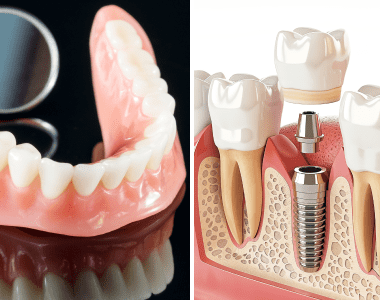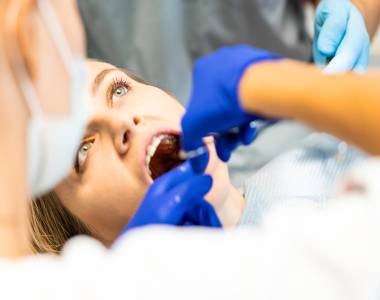
Can Brushing After a Meal Damage My Teeth?
At some point in the journey each of us takes toward optimal oral health, we wake up to realize that we have to take better care of our teeth and gums. Unfortunately, at this point, most of us simply increase what we are doing, assuming for example, “I must not be brushing my teeth enough”.
The problem occurs when we take action without first questioning whether what we’ve been taught by conventional wisdom’ is true or health-giving. It’s a common slippery slope because we want to make a change (we’ve awakened to the fact that we need to do something now) we rush headlong into doing more of the same.
However, without stopping to examine the fact that much of the damage in our mouths has come from conventional wisdom, we risk increasing the problem rather than finding the path to optimal oral health. We call this acting-before-thinking strategy the ‘Ready, Fire, Aim’ approach.
And so when we turn our attention to a common question we receive here at OraWellness, we see a very similar situation.
“Should I brush my teeth after every meal?”
Given the cultural misunderstandings we’ve all been taught, the logic of this question makes sense.
After all, we’ve been taught that bugs in the mouth are the (only) cause of decay, these bugs eat fermentable carbohydrates from the food we eat, and brushing removes the thug bugs and their food. While this is a partial truth (as you know, there are other more primary causes of tooth decay), does this mean that we should brush after every meal?
The problem with brushing after meals…
In a study published in the International Dental Journal titled “Can tooth brushing damage your health? Effects on oral and dental tissues” the authors state, “The toothbrush alone appears to not affect enamel and very little on dentine… Wear of enamel and dentine can be dramatically increased if tooth brushing follows an erosive challenge.”
So, what exactly is an ‘erosive challenge’?
To answer this, let’s go back to conventional wisdom. Even though we are taught that bugs in the mouth cause decay, we aren’t taught why this happens. The reason why bugs contribute to decay is that they secrete acids as part of their metabolic process and that acidic waste slowly dissolves tooth enamel.
This process is called ‘acid dissolution’.
Remember high school chemistry? Acids dissolve other compounds. In the case of our mouths, acids take apart (demineralize) the surface layer of our teeth. Before this scares you, realize that our bodies have a wonderful ability to remineralize this surface ‘acid dissolution of the enamel through contact with our saliva which we’ll detail shortly.
However, let’s be clear that acids cause ‘an erosive challenge’ to our teeth.
Going back to the study we quoted above, if we brush our teeth after an erosive challenge, wear of enamel and dentine can be dramatically increased (Just so you know we’re not over-sensationalizing this subject, the authors used the wording ‘dramatically increased’)
What does this have to do with brushing after meals?
The rub here is that most meals have some acidic component to them. Even if you aren’t drinking a ‘conventional soda’ (which is terrible for your teeth and the rest of your body by the way), we still have plenty of acid in most meals to cause an erosive challenge.
Common acidic foods and drinks that can challenge our enamel:
Here are some common acidic foods and drinks that can provoke an ‘erosion challenge’.
soda (Coke, Pepsi, etc)
‘healthy’ soda (kombucha, water kefir, etc)
anything sweet (sugar, corn syrup, honey, maple syrup)
salad dressing (vinegar is very acidic)
citrus (lemon, lime, etc)
fermented vegetables (sauerkraut, etc)
To be clear, naturally acidic foods are good for us (even sweet foods in very moderate amounts). They stimulate digestion helping us get more nutrients from what we eat as well as support a more balanced pH in our bodies. (Most of us tend toward an acidic internal environment, so having more naturally acidic foods helps our internal chemistry be more alkaline). This is the logic behind putting a squeeze of lemon in your water or having a side of fermented veggies with a meal.
You can feel the change in tooth surface…
If you tune into the feel of your teeth with your tongue, you can feel a roughness after eating or particularly after drinking something acidic. Then, after a bit of time, that surface roughness ‘goes away’ (is remineralized).
Since one of our primary aims with OraWellness is to help heal the disconnect most of us have with our mouths, here’s a free tool to help you get to know what’s going on in your mouth.
So, when it comes to eating and brushing, the game is to wait at least 20 minutes after eating before brushing.
You see, once acids in foods/drinks cause an erosive challenge, it takes a bit of time for the enamel that was weakened to harden back up. The last thing we want to do is unconsciously go scrub our teeth when the enamel is weakest as this has been proven to remove enamel from our teeth.
However, we can speed up the body’s ability to recover from acids in the mouth.
So how can we best support optimal remineralization after a meal?
The best ‘after a meal’ strategy we have found is to take a small mouthful of water and swish it around the mouth for several seconds after finishing a meal (unlike oil pulling, it’s fine to swallow the sip of water after the swish). This water bath helps to remove acids from the food/drink from the surface of our teeth to help stop the ‘erosive challenge’ while not physically scrubbing the softened enamel surface.
So, if you are brushing after meals and thinking that you are doing good, please pause, question the logic, and swish a sip of water instead!
https://orawellness.com/can-brushing-after-a-meal-damage-my-teeth/

 Review Us
Review Us Review Us
Review Us 

